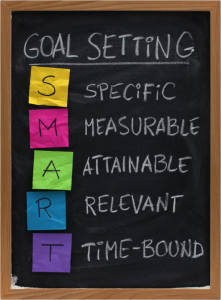 Metrics always seem to be a favorite topic of conversation. At a recent CSI program team meeting, I was comparing notes with the Consortium’s Melissa Burch about some of the ways that metrics are misused in our industry. Earlier in the year, my Third Tuesday collaborator, Francoise Tourniaire, and I led a talk on how much of the conventional wisdom in support is dead wrong. Unsurprisingly, much of that “wisdom” had to do with metrics. So, I decided it might be worth gathering up some of those threads and exposing our favorite metrics myths and half-truths.
Metrics always seem to be a favorite topic of conversation. At a recent CSI program team meeting, I was comparing notes with the Consortium’s Melissa Burch about some of the ways that metrics are misused in our industry. Earlier in the year, my Third Tuesday collaborator, Francoise Tourniaire, and I led a talk on how much of the conventional wisdom in support is dead wrong. Unsurprisingly, much of that “wisdom” had to do with metrics. So, I decided it might be worth gathering up some of those threads and exposing our favorite metrics myths and half-truths.
Following the Spinal Tap motif that has now become conventional in this space, our myths will go to eleven. We’ll break them in to bite-sized posts, one per myth.
If you’d like to see this in a webinar, rather than a series of blog posts, have a look here: http://www.youtube.com/watch?v=ayczz8W8kqw (warning: the audio quality is iffy.)
Metric Myth One: Goals Should be SMART
That is, individual performance goals should be Specific, Measurable, Attainable, Relevant, and Time-Bound…SMART. Doesn’t that sound SMART? Don’t I have to be a little DUMB to argue against SMART goals?
Well, not so fast. We’re not on the assembly line any more.
F.W. Taylor, stopwatch and notebook in hand, invented the practice of scientific management. He did painstaking research on the best way for men to shovel material (really!) and extrapolated general principles for making workers more efficient from these time and motion studies. He advocated paying workers by the piece, rather than a fixed salary. He believed that there is One Best Way of doing any task, and that management’s job is to make sure that One Best Way is exactly how workers do it.
F.W. Taylor would have absolutely loved SMART goals.
The nature of work has changed in the last hundred years since Taylor did his groundbreaking (given his fascination with shovels, literally groundbreaking) analyses. There’s now far less correlation between the units of work accomplished and the value that work creates. Would you measure a programmer by how many lines of code she creates? Or an advertising copywriter by the word? I expect you wouldn’t like what you got.
KCS practitioners know that, when it comes to activity, more is not necessarily better. As the KCS Practices Guide says,
“During the KCS adoption process, we have seen organizations put goals on KCS article creation (everyone should create five KCS articles a week) or KCS article reuse (analysts will be measured on how often they reuse KCS articles). The goals for these leading indicators may have been met, but the quality of the knowledge base has been seriously compromised. Invalid and duplicate KCS articles are created, because the focus is on the activity, not the outcome. Worse, emphasis can shift to gaming the system rather than generating real value. Inevitably, quality and morale suffer, management looks less competent, and the value of the knowledge is diminished.”
Unfortunately, it’s these activity measures that are just the kind of thing that are Specific and Measurable. We believe there is no single golden metric for the value created in the knowledgebase. Collaboration, which is notoriously hard to measure, is an important piece of employees’ contribution. We believe managers must do the hard work of providing feedback and assessing value by considering activities, outcomes, and quality measures in the context of the job and the environment—a judgment that’s driven by data, but is ultimately a human judgment, made in an environment of uncertainty. Anyone who tells you there’s a simpler way is selling you something.
SMART goals are comfortable. They’re reassuring. You make them or you don’t, and it’s all up to you.
If you want comfortable and reassuring work, it’s probably time to pick up a shovel. Knowledge work has many advantages, but being easy to measure isn’t one. For support delivery staff developing knowledge, it’s time to bury SMART goals.
I completely agree that knowledge work is notoriously difficult to measure, and yet, my annual review still depends on SMART goals. Grrrr. Maybe I should start shoveling knowledge articles.
Thank you for sharing these, David! I look forward to the rest of the series.
I’m bumbling now through the awkwardness of working toward goals that are decidedly difficult to measure. Even a couple months into daily engagement and relentless affirmations I feel the pull every day, little voices telling me I’m wasting time because my work won’t stand out in a graph. They taunt me, “C’mon, do something you can measure …. You’ll liiiike it..” I imagine it’s like an old junk habit.
Is that what I’m up against? Am I fighting an addiction?
Nancy – Well played. I’d laugh if I weren’t crying inside.
Roger, yes, you’re fighting an addiction. It’s not just you; it’s our whole industry that is on the dopamine-fueled hamster wheel of countable goals. We need an intervention. But we also need support…I’m thinking gamification might be our methadone.
Nancy – Well played. I’d laugh if I weren’t crying inside.
Roger, yes, you’re fighting an addiction. It’s not just you; it’s our whole industry that is on the dopamine-fueled hamster wheel of countable goals. We need an intervention. But we also need support…I’m thinking gamification might be our methadone.